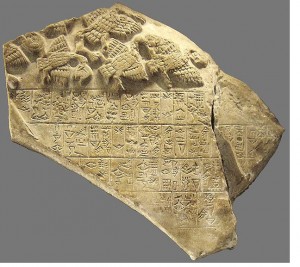MONDAY, 20 JUNE 2011
 The language, Akkadian, was used between 2500BC and 100AD, and survives on thousands of clay tablets, which range from tax documents to love letters. Production of the Chicago Assyrian Dictionary started in 1921 at the University of Chicago and was expected to take ten years. By 1935, a million index cards had been used and the project was still growing, drawing in researchers from all over the world [1]. Robert Biggs, who worked on the project for almost fifty years, recalls; “You always saw the light at the end of the tunnel... But the end of the tunnel kept getting further and further away.”
The language, Akkadian, was used between 2500BC and 100AD, and survives on thousands of clay tablets, which range from tax documents to love letters. Production of the Chicago Assyrian Dictionary started in 1921 at the University of Chicago and was expected to take ten years. By 1935, a million index cards had been used and the project was still growing, drawing in researchers from all over the world [1]. Robert Biggs, who worked on the project for almost fifty years, recalls; “You always saw the light at the end of the tunnel... But the end of the tunnel kept getting further and further away.”The academics battled with worn lettering, broken tablets and words whose use had changed over the millennia. Martha Roth, editor-in-charge, explains that it’s not a case of just understanding which word means 'king' for example, it's "a matter of understanding the thousands and thousands of references to the word king in every document in every period [2]."
This wasn't just a culture of kings and queens, however; the tablets reveal the lives of ordinary people with similar problems and concerns for their families that we know today. As a result the encyclopaedic dictionary details many aspects of Mesopotamian life.“They wrote these tablets thousands of years ago, never meaning for them to be read so much later,’ says Biggs, ‘But they speak to us in a way that makes their experiences come alive [3]."
Written by Amelia Penny
